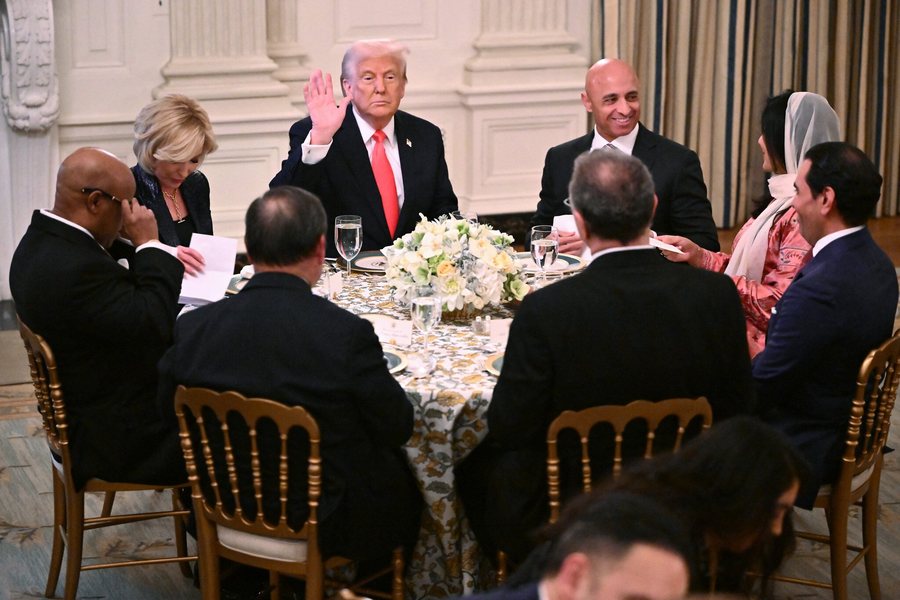
US President Donald Trump hosted an iftar dinner at the White House on Thursday to mark the holy month of Ramadan, CNN reported. He said he had a "record number" of Muslim supporters and stressed his administration's commitment to peace in the Middle East, promising to expand the Abraham Accords, which were negotiated during his first term.
"Every day we are keeping our promises to the Muslim community. My administration is committed to creating lasting peace in the Middle East. We are working on the historic Abraham Accords, which everyone said were impossible. And now we will begin to fulfill them, because, as you know, Biden did nothing to fulfill them. He did absolutely nothing...", Trump said.
"We started out a little slow with you, but then the numbers went up significantly," Trump added, speaking of Muslim support for him during last year's presidential election.
The dinner comes amid high tensions in the Middle East, as many Muslims have expressed their anger at US support for Israel and the military offensive in Gaza, which has caused tens of thousands of casualties following the attack by the Hamas group on October 7.
Also, new reports suggest that Trump could announce a new travel ban that could exclude citizens from Afghanistan and Pakistan. The move would reinstate the first ban imposed during his first term, which affected seven Muslim-majority countries and was upheld by the Supreme Court in 2018.
What are the Abrahamic Covenants?
The Abraham Accords are historic agreements signed between Israel, the United Arab Emirates (UAE), and Bahrain on September 15, 2020, with the mediation of the US. They aim to normalize relations between Israel and several Arab countries, improving diplomatic, economic, and technological cooperation.
The United Arab Emirates became the first Arab country to officially recognize Israel after Egypt (1979) and Jordan (1994). Bahrain joined the process by signing a similar agreement with Israel. Later, Morocco and Sudan also joined the Abraham Accords, establishing relations with Israel.
These agreements include cooperation in areas such as trade, technology, tourism and defense. One of the conditions was that Israel halt plans to annex parts of the West Bank.
The agreements marked a major shift in Middle East relations, emphasizing shared interests against Iran. They were met with opposition from Palestine, which viewed them as a betrayal of the Palestinian cause.
The Donald Trump administration played a key role in brokering the agreements. Despite criticism, the agreements were seen as an important step towards regional stability and Israel's integration into the Arab world. (A2 Televizion)











